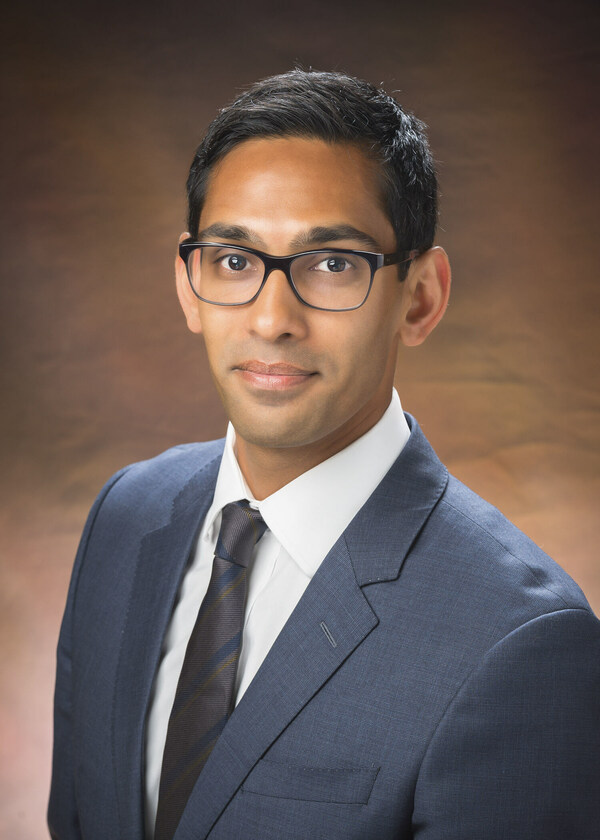CHOP Surgeons Find Over-the-Counter Medications Control Pain after Elbow Surgery as Effectively as Opioids
2023-10-23
临床结果
--Findings suggest orthopaedic providers could improve opioid stewardship by recommending ibuprofen and acetaminophen instead of opioids after elbow and similar surgeries--
PHILADELPHIA, Oct. 23, 2023 /PRNewswire/ -- Children who take only ibuprofen or acetaminophen after routine elbow surgery report similar pain control to patients who take opioids, according to a new study by researchers at Children's Hospital of Philadelphia (CHOP). The study, published in the Journal of Bone and Joint Surgery, suggests surgeons can confidently recommend over-the-counter medications to patients after elbow and discontinue the routine prescription of opioids.
Continue Reading

Preview
来源: PRNewswire
Dr. Apurva Shah, Children's Hospital of Philadelphia
"Pain is an important indicator of post-surgical recovery, and we want to make sure kids are not suffering needlessly, but we also want to make sure we are controlling pain in a responsible way," said senior author Apurva S. Shah, MD, MBA, an attending orthopaedic surgeon at CHOP. "This study provides support for recommending acetaminophen and ibuprofen to patients after elbow fracture surgery, which will improve opioid stewardship for this common surgery and potentially for others like it."
Supracondylar humerus (SCH) fractures are the most common elbow fracture in children and are repaired through a procedure called closed reduction and percutaneous pinning (CRPP), which allows surgeons to repair the fracture without an incision. Multiple studies have questioned the need for opioids following this procedure, including a study by CHOP researchers that found patients used less than 25% of the opioids they were prescribed, raising a potential risk of opioid misuse, diversion into communities, and accidental poisonings.
Promoting opioid stewardship without compromising patient comfort is key to ensuring safe, quality care, but prior to this study, there was little information on the efficacy of opioid versus non-opioid pain control in patients receiving orthopaedic procedures like CRPP.
To help develop evidence-based guidelines for this population, the researchers enrolled 157 children from four tertiary hospitals in the United States between May 2021 and August 2022. The children, who were between the ages of 3 and 12, all had SCH fractures that were being repaired via CRPP.
Approximately half (52%) of the patients enrolled in the study were prescribed the opioid oxycodone, as well as ibuprofen and acetaminophen, whereas the other half (48%) were prescribed only ibuprofen and acetaminophen. Using text messages, participants reported on the children's medication use and daily pain using the Pain FACES Scale for a week after the surgery, as well as on days 10, 14 and 21.
The researchers found no significant differences in pain ratings between opioid and non-opioid groups at any timepoint. Notably, 35% of patients who were prescribed opioids never took them, and 49% took only one to three doses over the entire postoperative period. Patients who did take opioids rarely took them for more than two days after surgery. Only one patient in the non-opioid group (1%) asked for a prescription of opioids after presenting to the ED with postoperative cast discomfort.
"Given that this study shows no significant benefit to opioid use in controlling pain in patients undergoing CRPP for elbow fractures, providers and institutions should consider discontinuing the routine prescription of opioids following this procedure – and potentially for other upper extremity fractures repaired using CRPP," Dr. Shah said. "Research into more invasive pediatric orthopaedic procedures and adolescent populations may demonstrate additional areas for opioid stewardship. Investment into these areas will ultimately improve the quality, safety, and value of surgical care in pediatric orthopaedics."
Read the full study here:
https://journals-lww-com.libproxy1.nus.edu.sg/jbjsjournal/fulltext/9900/opioid_analgesia_compared_with_non_opioid.931.aspx
About Children's Hospital of Philadelphia: A non-profit, charitable organization, Children's Hospital of Philadelphia was founded in 1855 as the nation's first pediatric hospital. Through its long-standing commitment to providing exceptional patient care, training new generations of pediatric healthcare professionals, and pioneering major research initiatives, the 595-bed hospital has fostered many discoveries that have benefited children worldwide. Its pediatric research program is among the largest in the country. The institution has a well-established history of providing advanced pediatric care close to home through its CHOP Care Network, which includes more than 50 primary care practices, specialty care and surgical centers, urgent care centers, and community hospital alliances throughout Pennsylvania and New Jersey, as well as the Middleman Family Pavilion and its dedicated pediatric emergency department in King of Prussia. In addition, its unique family-centered care and public service programs have brought Children's Hospital of Philadelphia recognition as a leading advocate for children and adolescents. For more information, visit https://www.chop.edu.
Contact: Ashley Moore
(267) 426-6071
[email protected]
更多内容,请访问原始网站
文中所述内容并不反映新药情报库及其所属公司任何意见及观点,如有版权侵扰或错误之处,请及时联系我们,我们会在24小时内配合处理。
靶点
-热门报告
立即开始免费试用!
智慧芽新药情报库是智慧芽专为生命科学人士构建的基于AI的创新药情报平台,助您全方位提升您的研发与决策效率。
立即开始数据试用!
智慧芽新药库数据也通过智慧芽数据服务平台,以API或者数据包形式对外开放,助您更加充分利用智慧芽新药情报信息。



